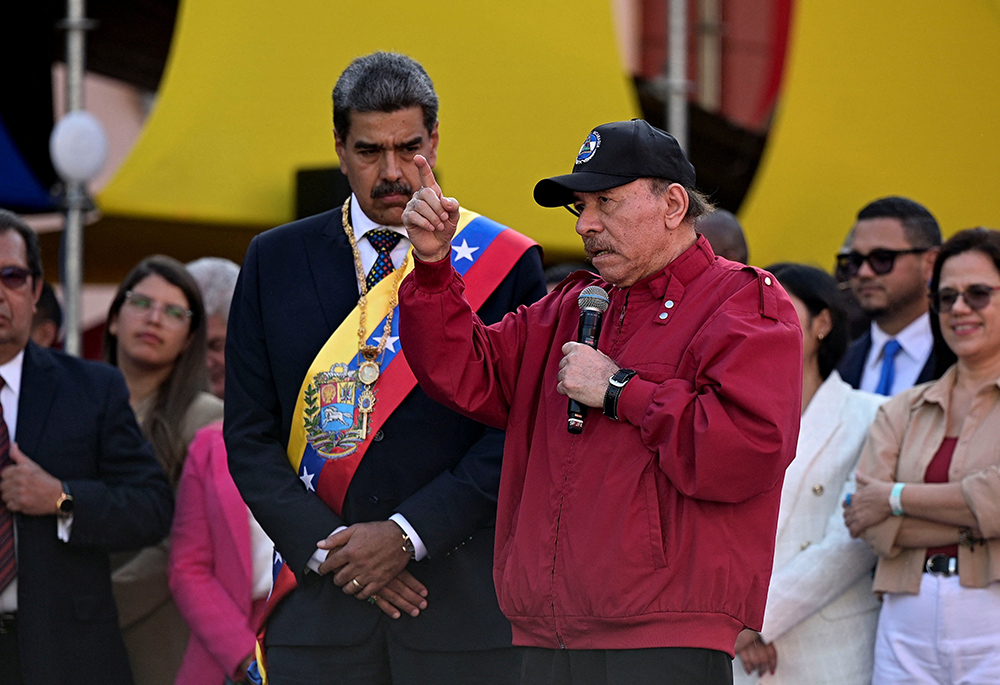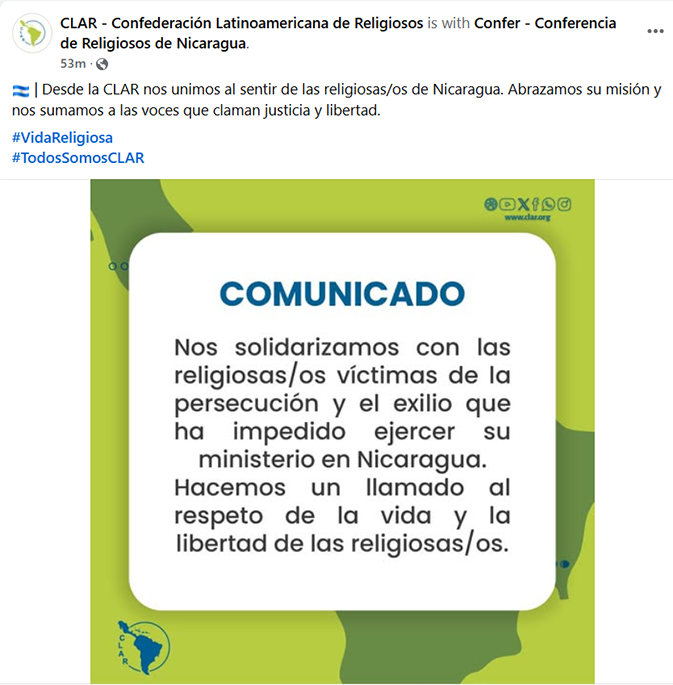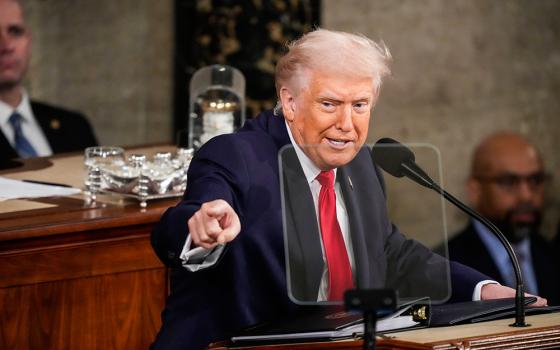
Nicaragua's President Daniel Ortega speaks during the inauguration of Venezuela's President Nicolas Maduro, on Jan. 10 in Caracas, Venezuela. Nicaragua has canceled the legal status of more than 5,400 religious and nongovernmental groups over the past six years as the government of Ortega and his wife, Vice President Rosario Murillo, closed spaces for civil society, persecuted the press and the opposition, and infringed on basic rights such as the freedom of association. (OSV News/Reuters/Gaby Oraa)
The largest organization of women and men religious in Latin America called for the "respect of life" of women and men religious in Nicaragua Jan. 29, following online reports overnight that a group of Poor Clares has been expelled from the country.
"We stand in solidarity with the women and men religious who are victims of persecution and exile, which has prevented them from exercising their ministry in Nicaragua," said the statement from the Confederation of Latin American and Caribbean Religious, known as CLAR. "We call for the respect of life and freedom of women and men religious."
The statement was released hours after online websites, many run by Nicaraguans in exile, posted videos and past photos purported to be of the sisters, saying communities of Poor Clares in three Nicaraguan cities had been ordered to leave, their properties confiscated and the whereabouts of the women unknown.
Global Sisters Report cannot independently confirm the reports.

A screenshot of CLAR's Jan. 29 statement in solidarity with women and men religious in Nicaragua (GSR screenshot)
Nicaraguan Fr. Erick Diaz, who was expelled by his government in 2022 and now lives in Chicago, said that what happened to the Poor Clares amounts to "one more day of religious persecution in Nicaragua," saying that the sisters' convent and other property had been taken.
"As men of faith we invite others to prayer. Convents are places to gather oneself and to pray," he said. "The cross remains very heavy for the [Christian] faith and for the true Christians of this country."
He asked for unity and said 2025 already is a year of hope in the midst of gray skies.
CLAR, too, has repeatedly voiced support for Nicaraguans in general, but in particular for expelled consecrated life and those who remain in the country, sometimes in hiding. It's hard to know just how many congregations have left by choice or been expelled.
Some, like the male community of Discalced Carmelites, which had been in Managua for more than 50 years, announced Jan. 23 that the order would turn over to the archdiocese the parish of El Carmen, which is in the neighborhood where Nicaragua's President Daniel Ortega lives with his wife and the country's vice president, Rosario Murillo.
Advertisement
The Discalced Carmelites cited in a statement a lack of vocations for their departure, while activists said they had been expelled. Other communities of religious have left in silence, never disclosing publicly that they left or why.
The exodus of religious communities from Nicaragua on a grand scale began in 2022 with the public expulsion of the Missionaries of Charity, founded by St. Teresa of Kolkata. Since then, other communities have followed with few publicly saying they were expelled, while others privately have said that the government's limitations and persecution made it difficult to attract new members and it was impossible to continue with a small number of members in their community.
A Nicaraguan sister, speaking to GSR on condition of anonymity in August 2024, said it's hard for religious to talk about what happened, even after they've left, because they worry about government retaliation against those left behind.
"Those of us here, because of the situation, we can't say anything. We can't publish anything. We absolutely cannot share any information the way a normal person would in a normal country," she told GSR.





